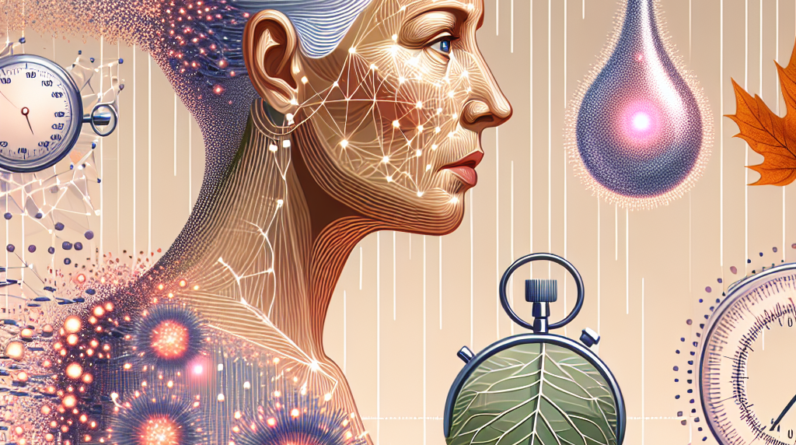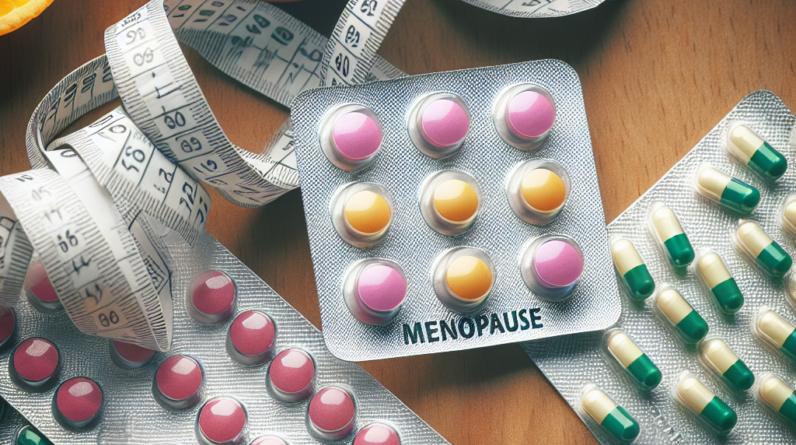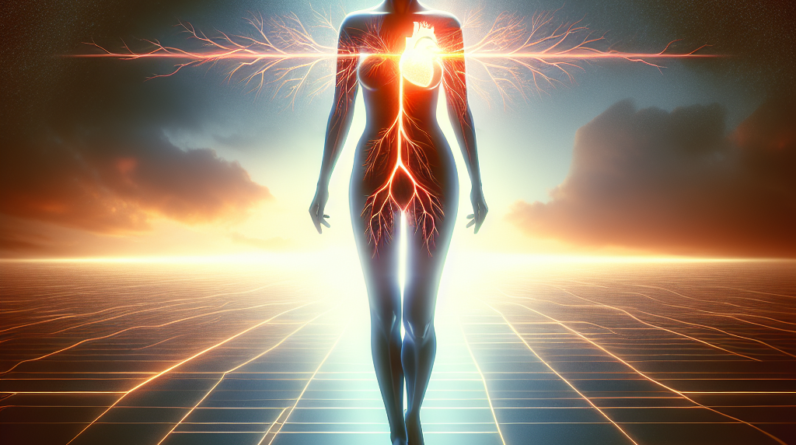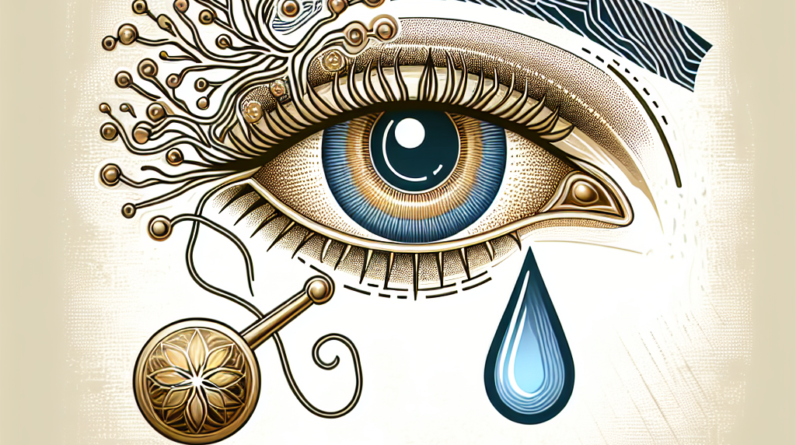
Imagine this: you’re going about your day, minding your own business, when suddenly, you feel a strange tingling sensation in your hands or feet. It’s not painful, but it’s definitely noticeable. Before you panic and assume the worst, relax. These tingling sensations are actually quite common during menopause. In this article, we will explore the reasons behind these sensations, how they can be managed, and when it might be a good idea to seek medical advice. So, grab a cup of tea, sit back, and let’s delve into the world of tingling sensations during menopause.
Understanding Tingling Sensations During Menopause

What is menopause?
Menopause is a natural phase that every woman will go through as she reaches a certain stage in her life. It is the time when the ovaries stop producing eggs, and estrogen and progesterone levels decline significantly. This hormonal shift marks the end of the reproductive years and typically occurs between the ages of 45 and 55. Menopause is a normal part of aging and signifies the end of a woman’s menstrual cycles. However, along with this transition come a range of symptoms, including the often unsettling tingling sensations in various parts of the body.
Symptoms of menopause
Menopause brings about several symptoms that subtly remind a woman’s body of the changes occurring within. Some of the most common symptoms include hot flashes, night sweats, mood swings, vaginal dryness, sleep disturbances, and changes in cholesterol levels. Tingling sensations, or paresthesia, are another symptom that often accompanies menopause. While tingling can be bothersome and uncomfortable, it is essential to understand why these sensations occur and how they can be managed.
Causes of tingling sensations during menopause
The cause of tingling sensations during menopause can be attributed to hormonal changes, a decrease in circulation, and other contributing factors. Estrogen, a key hormone that plummets during menopause, plays a significant role in nerve health. When estrogen levels decline, nerve function may be affected, leading to tingling sensations in various parts of the body. Additionally, decreased circulation during menopause can also contribute to tingling and numbness, as the blood vessels become constricted, reducing blood flow to certain areas.
Hormonal changes and tingling
Hormonal changes during menopause can wreak havoc on the body, leading to a variety of symptoms that can range from mild to severe. Estrogen, the primary hormone involved in the reproductive system, has an impact on many bodily functions, including nerve health. As estrogen levels decrease, the body’s natural ability to protect and repair nerves diminishes, resulting in tingling sensations. While the exact mechanism behind this connection is still being studied, researchers believe that estrogen plays a crucial role in maintaining and supporting the health of nerves throughout the body.

Effects of estrogen on nerve health
Estrogen has a vital role in maintaining nerve health. It helps regulate the production of myelin, a protective coating that surrounds nerves and facilitates proper nerve conduction. When estrogen levels drop during menopause, the production of myelin may be compromised, leading to nerve dysfunction and tingling sensations. Additionally, estrogen also aids in maintaining the integrity of blood vessels, promoting healthy blood flow to nerve endings. The decline in estrogen levels can disrupt this process, resulting in reduced blood flow and tingling sensations.
Decreased circulation and nerve function
During menopause, the decline in estrogen levels is accompanied by changes in the vascular system. The narrowing of blood vessels and reduced blood flow can affect nerve health and function, leading to tingling sensations. As the body experiences decreased circulation, essential nutrients and oxygen may not reach the nerves as efficiently, resulting in tingling, numbness, or even heightened sensitivity in certain areas. Understanding the connection between decreased circulation and tingling sensations is crucial in managing and treating this menopausal symptom effectively.
Other factors contributing to tingling sensations
While hormonal changes and decreased circulation are significant contributors to tingling sensations during menopause, other factors can also play a role. Vitamin deficiencies, particularly in vitamins B12 and D, can affect nerve health and contribute to tingling sensations. Additionally, certain medications, such as those used to manage menopausal symptoms or underlying health conditions, may have side effects that include tingling or numbness. It is important to consider these factors when evaluating and treating tingling sensations during menopause.
Common areas affected by tingling sensations
Tingling sensations during menopause can occur in various parts of the body. Some of the most commonly affected areas include the arms, legs, hands, and feet. Women may experience a feeling of pins and needles, numbness, or even a burning sensation in these regions. The severity of the tingling can vary from person to person, and it may come and go or persist for extended periods. While the sensation may be bothersome, there are various strategies and interventions available to manage and alleviate these symptoms.
Managing and treating tingling sensations
Managing and treating tingling sensations during menopause involves a multidimensional approach. Making lifestyle changes, seeking natural remedies, and considering medical interventions can all help alleviate this bothersome symptom. It is important to discuss any concerns or symptoms with a healthcare provider to determine the best course of action for individual needs.
Lifestyle changes for relief
Making lifestyle changes can have a significant impact on reducing tingling sensations during menopause. Regular exercise, such as walking or yoga, can improve circulation and promote overall nerve health. Incorporating relaxation techniques, such as deep breathing exercises or meditation, can also help manage stress, which can exacerbate tingling sensations. Additionally, avoiding triggers like caffeine, alcohol, and spicy foods that may worsen symptoms can be beneficial. Ensuring an adequate intake of essential nutrients, particularly vitamin B12 and D, can support nerve health and minimize tingling.
Medical interventions for tingling during menopause
In some cases, lifestyle changes may not be enough to alleviate tingling sensations during menopause. In such instances, medical interventions may be necessary. Healthcare providers may prescribe medications to manage symptoms or supplements to address nutrient deficiencies contributing to the tingling. Hormone replacement therapy (HRT) is another option that can help restore hormone levels and alleviate menopausal symptoms, including tingling sensations. It is crucial to discuss the benefits and potential risks of each intervention with a healthcare provider to make an informed decision.
In conclusion, tingling sensations during menopause are an oftentimes unsettling symptom that many women experience. Understanding the underlying causes, such as hormonal changes and decreased circulation, can help manage and treat these sensations effectively. By adopting lifestyle changes and considering medical interventions when necessary, women can find relief from tingling sensations and embrace this new phase of life with confidence and ease. Remember, you are not alone in this journey, and your healthcare provider is there to guide and support you every step of the way.







